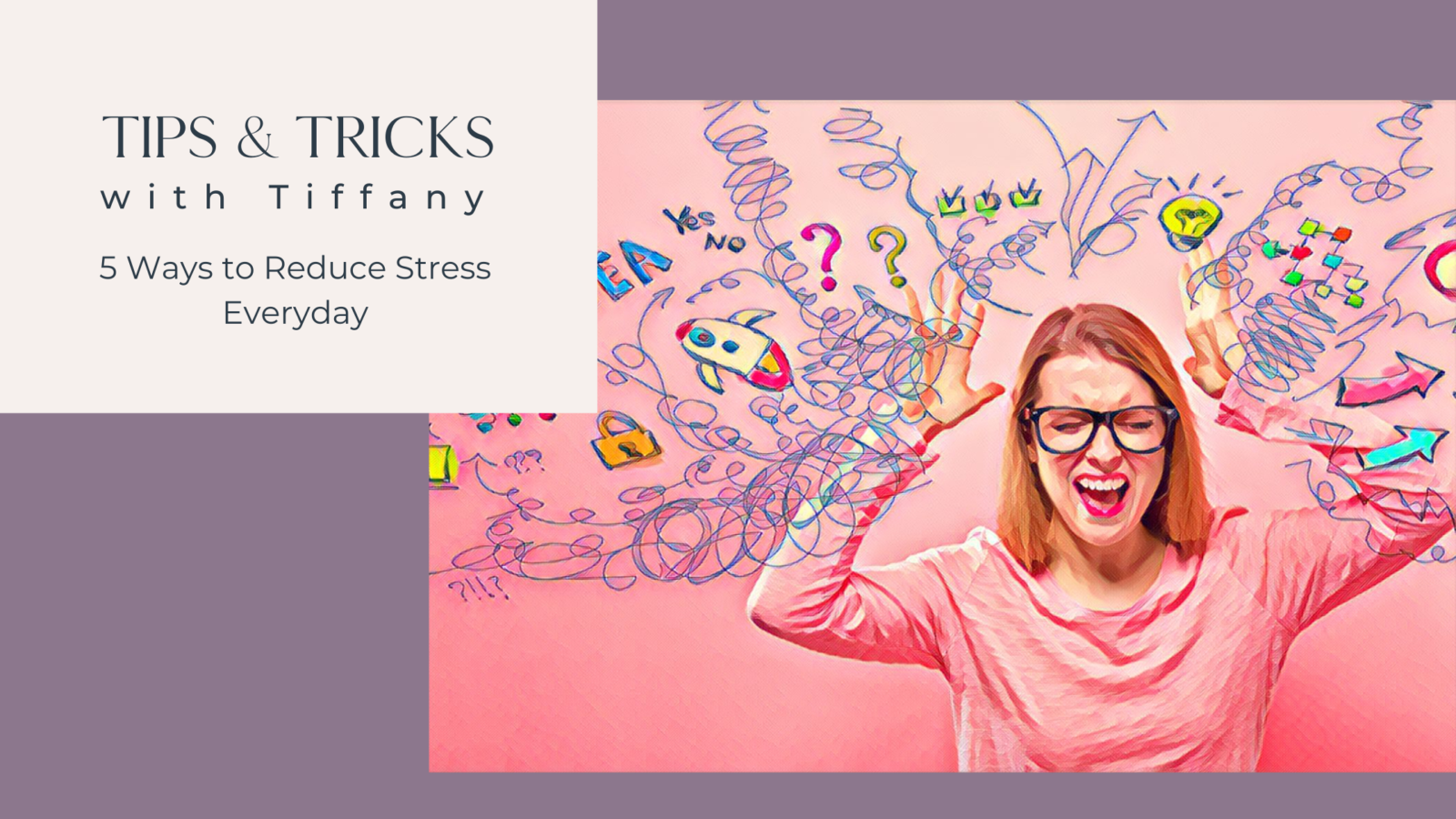If you’re like most people with a chronic illness like fibromyalgia or autoimmune, you’re always looking for ways to reduce stress in your life. Unfortunately, stress can aggravate symptoms, so it’s important to find healthy ways to manage it.
So today I’m going to share with you 5 tips on how to reduce stress.
The number one thing we can do to help reduce our stress is to start daily rituals, including good habits for our mind and body.
1. FOCUS ON GETTING GOOD QUALITY SLEEP
Improving your sleep is an integral part of living better with fibromyalgia; it better manages our pain and energy levels. Sleep quality can also profoundly affect the amount of stress we feel.
If we already have a good deal of stress, not sleeping well will worsen it. It’s also that difficulties with fibromyalgia made worse by stress can increase our struggles falling asleep or getting quality sleep.
It may take time, but it is possible to get good quality sleep with focus, shutting off your phone early in the evening, taking measures to allow your body and mind to relax in the evening, or trying natural sleep aids.
If your attempts at achieving quality sleep are not working, don’t hesitate to speak with your medical practitioner about your sleep issues. Getting quality sleep should be a high priority when striving to reduce stress.
2. ADAPTOGEN HERBS
As a master herbalist, you know I have to throw this in there.
Adaptogens are non-toxic plants that are marketed as helping the body resist stressors of all kinds, whether physical, chemical or biological. These herbs and roots have been used for centuries in Chinese and Ayurvedic healing traditions.
These herbs aid our bodies in reacting to or recovering from both short- and long-term physical or mental stress.
In order to be classified as an adaptogen, an herb must meet these 3 criteria:
- They help your body adapt to stress. They must reduce the harm caused by stressed states, such as fatigue, infection, and depression
- They help your body return to balance (homeostasis)
- They must be non-toxic when taken in normal doses. This means they are safe for everyday use and safe for all people to take. This also means they they cannot have negative side effects on the body.
Research shows adaptogens can combat fatigue, enhance mental performance, ease depression and anxiety, and help you thrive rather than just muddle through.
They can boost overall health and specifically help people with:
- the mental and physical fatigue that can come with stress
- pain and inflammation due to osteoarthritis and rheumatoid arthritis (RA)
- fibromyalagia
- sleep problems
- hormonal imbalances that affect the nervous system, for example, by producing the energy the body needs to use nutrients more effectively
In fact, not only do I take adaptogen herbs every day, I also recommend them to my clients.
3. SPEND TIME OUTSIDE
Getting outside is healing for your mind, body, and spirit. You will get fresh air and vitamin D for your body, which is important for reducing stress levels. Being outside in nature can also motivate and inspire and help you relax and unwind.
Perhaps try to eat out during your lunch break, take a short walk or read a book sitting outside in your garden. Try to spend more time outdoors and see if it helps your stress naturally reduce each day.
4. SWAP COFFEE FOR TEA
Caffeine, unfortunately, can make your stress worse as it can increase the stress hormone cortisol. So if you drink a lot of caffeine from coffee or soft drinks, it might be time to consider reducing it.
First, switch to a low-caffeine tea or herbal infusion for at least one of your daily cups of caffeinated beverages. Then gradually increase more and more caffeinated drinks with no-caffeine drinks.
5. LESS SOCIAL MEDIA
Have you noticed that your stress is worse on days when you spend a lot of time on social network pages? Too often, these sites increase stress and anxiety, whether from the latest tragedy in your city or country, political or religious debates, or just drama with people you know in your life.
Social media can be toxic and doesn’t help someone already dealing with a good deal of stress. So now is the perfect time to start cutting back on Facebook, Twitter, Instagram, and any other social media sites you frequent if you feel worse after engaging in these sites.
6. SELF-CARE
Self-care is fantastic for you and can help you to relax each day. If you have a lot of stress at work or home, give yourself a few minutes every evening that is just for you.
Listen to your favorite podcast or music, go for a walk, practice mindfulness, write in your journal, draw, paint or do some coloring, take a bath, or do anything that relaxes you and helps you feel at peace.

Tiffany DeLuisi is passionate about helping women with autoimmune and fibromyalgia thrive. With her extensive knowledge and compassionate approach, she’s guiding clients on their journey to reduce symptoms and reclaim their lives. Ready to take the next step? Schedule your free Autoimmune Breakthrough Session today and start your path to healing.

